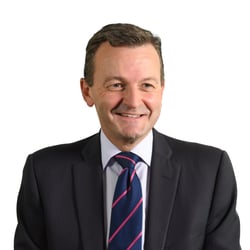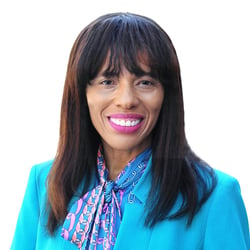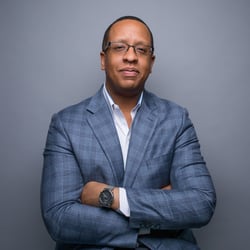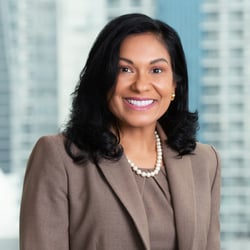Four legal mavericks share their unique career journeys.
 Stuart Fuller
Stuart Fuller
Global Head of Legal Services, KPMG International
I joined Mallesons in 1990 as a young associate. However, a few years in, I made the decision to leave and go in-house. My two supervising partners told me this was not the right decision, but I did it anyway. Within six weeks, I knew that I had made the wrong decision, and three months later, I was back at Mallesons. You have to enjoy what you are doing—and I wasn’t—and if you make a mistake, you have to make that call and move on. That’s what I did, and the partners accepted that and welcomed me back.
I stayed at Mallesons for 27 years. In that time, I had seven jobs inside the firm—all of which were very different roles and kept me learning. I worked with some top-notch partners who taught me everything I know about law, how to do business and how to lead a law firm. Having led the combination of Mallesons and King & Wood, I learned a lot from Wang Junfeng, the chairman of King & Wood in China, who taught me about China and the Asian region; getting to know someone who founded a leading firm was a wonderful experience. I was also fortunate to work with a great coach for years who kept me honest and focused on where I did well and where I should improve.
I had gone from practicing law to leadership of a regional law firm to leadership of a global law firm, so when a recruiter called with an opportunity at KPMG Law, I decided to listen. KPMG Law was a growing business and the firm wanted someone with legal expertise and leadership experience. The opportunity was interesting, and this was a chance to lead and grow something different, which has now become a global role at KPMG Law. Leading a global team of over 2,800 lawyers in 81 jurisdictions across every region of the world and combining that unparalleled platform of talent with global and tech-enabled solutions, all as part of an integrated offering across KPMG’s legal, advisory, consulting and deals capability, allows us to provide a different option for our clients at the time of unprecedented disruption in the legal services industry. Moving to KPMG is one of the best career decisions I’ve made.
 LaVon M. Johns
LaVon M. Johns
Principal, Miller Canfield
I have always been interested in the law and being a lawyer even though I don't come from a family of lawyers. I'm the first and only lawyer in my family. As a kid, I wanted to work in a profession that would allow me to have an impact on the economics of the community. I was really interested in figuring out how to bring communities access to capital, goods, quality housing—all of those things. Most of the time you need to understand the laws that impact those things to make a real difference.
I grew up on the west side of Chicago where we didn’t have access to a lot, so I wanted to figure out how to help the community have more control over their lifestyle and things of that nature. That's when I decided I was going to attend law school, and I knew I'd be a transactional attorney because I wanted to help people make things happen—and the best way to make things happen is to understand how they get done.
Once I began to practice, it was really important for me to give back to all areas of the city. Now in my practice, I represent some of the biggest corporate clients, but then you’ll see me in the neighborhood helping a church get to where they need to be.
Surprising to most, my faith-based work is actually some of the work I’m most proud of. It keeps me charged. It keeps me engaged. It keeps me seeing the impact of what I can do to help others achieve their goals.
I grew up in the church with my grandmother, so I grew up knowing that it was always going to be a part of my life. I remember my grandmother was treasurer of our church, and she was always trying to help the minister figure out how to get things done with the small means that the church had. So very early on in my practice, I decided that some of my client base, some of my key client contacts, would be ministers and persons of faith. And I have been really blessed by those relationships and the work that I do in this sector. One example was helping a minister reduce his preaching schedule from four times on Sunday to one time on Sunday because we built a church facility that was large enough to house all of the membership at once to worship together. I enjoy providing legal services and structuring transactions that bring together both top level professionals and access capital. For me, providing legal counsel that results in economic empowerment, a positive impact on the community and life-altering result—that's the work that moves me.
 Damian W. Wilmot
Damian W. Wilmot
Senior Vice President and Chief Risk and Compliance Officer, Vertex Pharmaceuticals
There is a point in your career where you have to make the decisions based on what you can learn to become better at your craft. Early on, I was definitely making decisions based on what looked really interesting. I was at a law firm when I left to be a prosecutor. I knew that I was going to try cases and be in court and take these challenging matters on.
But I think the biggest risk I’ve taken was being comfortable with stepping away from being a lawyer. I was head of HR for a company for almost a year. I was head of quality assurance for a few years. I’ve taken on some roles that might be close cousins to the law, where having a legal understanding is helpful, but they were not legal roles. These types of roles teach you a lot more about the business and other areas in your company.
Now, as head of risk and compliance, I have a few functions that report up to me. Compliance in pharma is a more traditional corporate compliance function—which we call the office of business integrity and ethics. Then I have litigation and employment, which are more traditional legal functions. But I also have business continuity, which is not a legal function; this is more about the continuity of your operation. And I run the enterprise risk management program and it’s not really a legal function either. It broadly looks at risks in our operations and our business, so it’s a range of things.
Taking on these other roles makes you a better leader. It changes the perception of you as being able to bring more to the table than just the legal advice. If you can be seen as more of a business leader who happens to be a lawyer, I think that's a better place to be.
And to be a successful leader, you have to know a lot about the business you are working in. The more senior you get, the further you get from the ground, so you have to have a wider view of how this all works and works together because when something happens, you have to understand what the effect is in the other lanes.
 Vanessa Singh Johannes
Vanessa Singh Johannes
Of Counsel, Carlton Fields
I always wanted to be in a courtroom. Upon graduating from Duke Law (’06), I joined Kirkland & Ellis LLP (K&E) in New York, and it gave me a solid foundation to be an effective trial attorney. My first assignment was on a complex, billion-dollar financial services matter, slated to go to trial. On that case, I handled various depositions, witness preps, and worked with excellent jury consultants. Though that case pled on the eve of trial, I loved every aspect of trial prep. I also got a feel for trial work through K&E’s “KITA” training program, mocked after the National Institute of Trial Advocacy trial seminars, which trains all federal prosecutors. KITA allows associates to participate in mock trials, which partners critique and provide authentic feedback. Following my early hands-on experiences at K&E, I realized the next step in my career was to get real-life, constant trial experience under my belt. It is hard to obtain that at a major law firm. So, I followed the advice of a senior partner and applied to be in an Assistant US Attorney (AUSA).
I was fortunate. All the stars aligned and I became an AUSA in short order. I was very lucky to be selected. I did not realize, until years later when I was on the hiring panel for a U.S. Attorney’s Office (USAO), how hard it is to land a first-round interview. I was fortunate to go through several interview rounds in two districts, but decided to return to my hometown, Miami, and join the USAO-SDFL. Being an AUSA was all I imagined – and more. It truly is the best job you can have as a trial attorney. AUSAs handle their own cases – from the investigation to the trial (and sometimes, on appeal). Every stage of a case falls on their shoulders. While they have a lot of power, they also have a lot of responsibility because they serve the community at large. It is a purpose-driven job and, really, incredibly meaningful if you do it for the right reasons. It is a calling.
Being an AUSA also means you are thrown into the fire; training is in real-time. The cases are constantly coming to you – especially in reactive units, like the ones I worked in. For example, after serving my training stints in the Appellate and Major Crimes units for two years, I joined the Special Prosecutions Unit of the Criminal Division and was there for approximately eight years. Special Prosecutions handles extreme violent crimes, human trafficking, and complex child exploitation matters. I always knew I wanted to do victim-centric cases and this was a good fit. Every day, I lived the “Law and Order” life – and loved it. I found passion in my cases and a home in the courtroom, which I was in a lot because Special Prosecutions cases generally go to trial more than others (due to the high sentencing exposure a defendant faces). It was righteous, rewarding work, and a dream job.
In this capacity, I also learned that working with victims and people in general was a real skillset of mine. To be a prosecutor doing the type of cases I did, you have to be a “people person”. You cannot fake rapport building. People are people, and victims especially, will turn away if they do not feel a connection to the person fighting for them. I found that I was very good at interviewing witnesses and victims – perhaps because I was raised in the same community many of them came from, or perhaps because I did not judge their situation at hand. Conducting effective interviews and building rapport became one of my most effective skills as a prosecutor. Frankly, it is a skill that also makes me successful in the courtroom. Jurors do not want to hear “lawyer-speak” all day long — you have to know how to talk to people and be “real” to be a good trial attorney. Lucky for me, it comes naturally.
It was very difficult for me to leave the role of being an AUSA. As I said, that is not a job — it is a calling. However, I am also extremely ambitious and always seeking the next big challenge. When there is a desire within to try something new, I truly believe in following that gut feeling. My next chapter in my career has brought me to white-collar criminal defense work and government investigations at the national law firm Carlton Fields PA. As well, I plan on devoting time to working on matters that are still near and dear to my heart – such as human trafficking and civil rights cases – even if on a pro bono basis. Carlton Fields was a good fit because I love criminal work and trying cases, and my partner, Michael S. Pasano, is the same in this regard. Carlton Fields has a robust white-collar practice; our team of experienced lawyers have tried hundreds of criminal cases to judgment in bench and jury trials. In addition, I wanted to go to a firm where, like the USAO, the attorneys are not just known for top-notch advocacy, but for being nice people. Yes, that sounds kitsch – but you get to a point in your career where that becomes a priority.
Some have asked me what it is like to go from being a “prosecutor’s prosecutor” to being a criminal defense attorney. I have to say, I have been surprised by how much of a different perspective this new role gives me. Whereas as a prosecutor I was helping victims, as a white-collar defense attorney, I now help to understand my clients’ situations and walk them through the criminal justice system. As a prosecutor, I did not necessarily think about the havoc I was bringing to someone's life – or their family’s lives – through investigative actions. I have learned the true impact of such decisions on this side. It has given me a full, bird’s eye view of the criminal justice system to have both the perspectives of being a federal prosecutor and a criminal defense attorney.
Much like my work as a prosecutor, though, I have again learned that one of my strongest skills is being able to work with – and talk to – people. Really, to be a good attorney in any manner, you have to embrace that you are a “counselor.” Even now in private practice, I spend a significant portion of my time advising clients, not just on legal issues, but a range of topics that affect their lives. The term “counselor” is the right one for our profession. I spend a large portion of time talking to my clients about not just investigations and their businesses, but strategy. Trial attorneys are part advocates, part advisors, part therapists… all the time. I never knew my career would take such a path, but truly, I am so happy it did. It has been fulfilling on so many levels, and to know that I am just getting started again on a new adventure is quite exciting!



